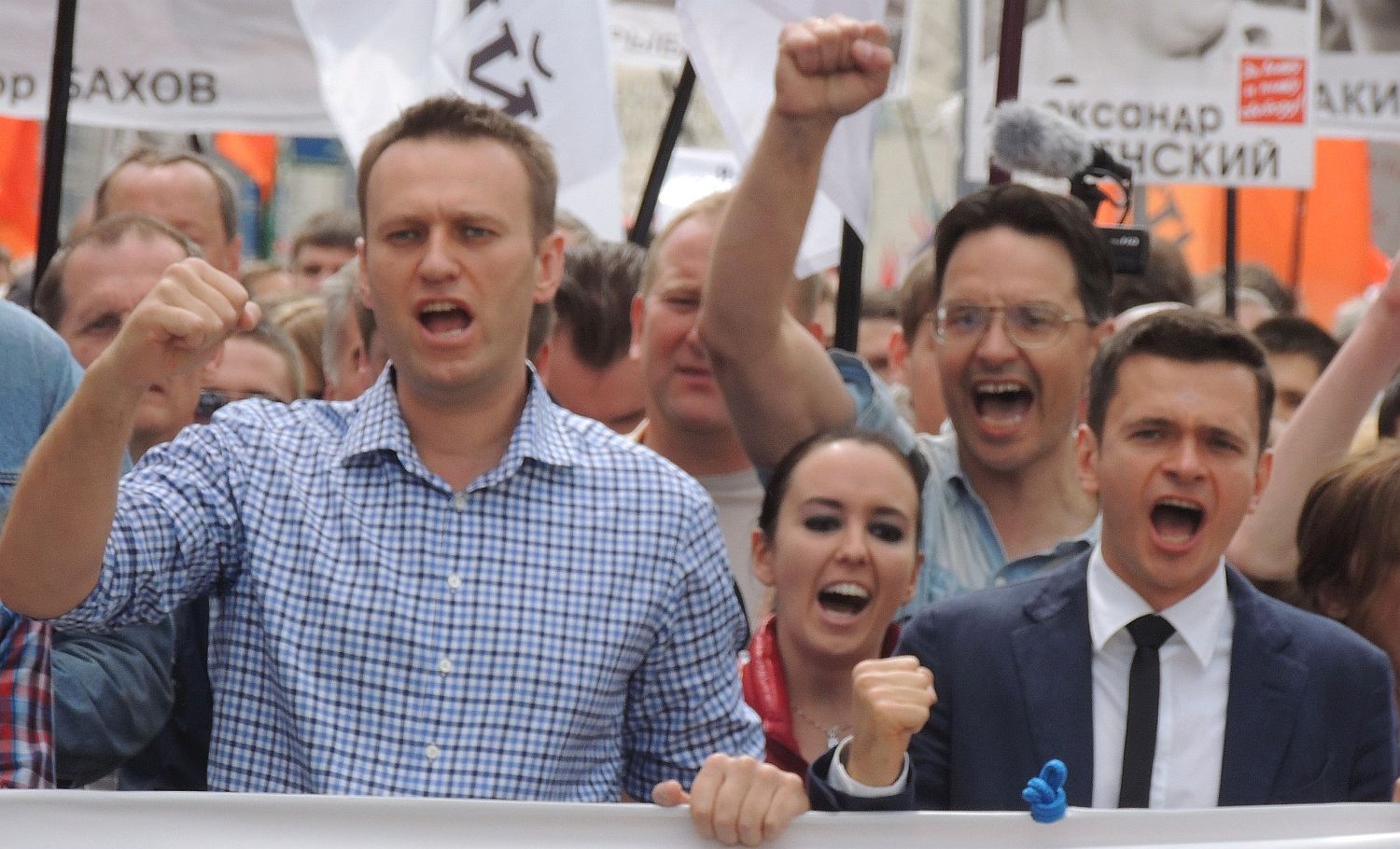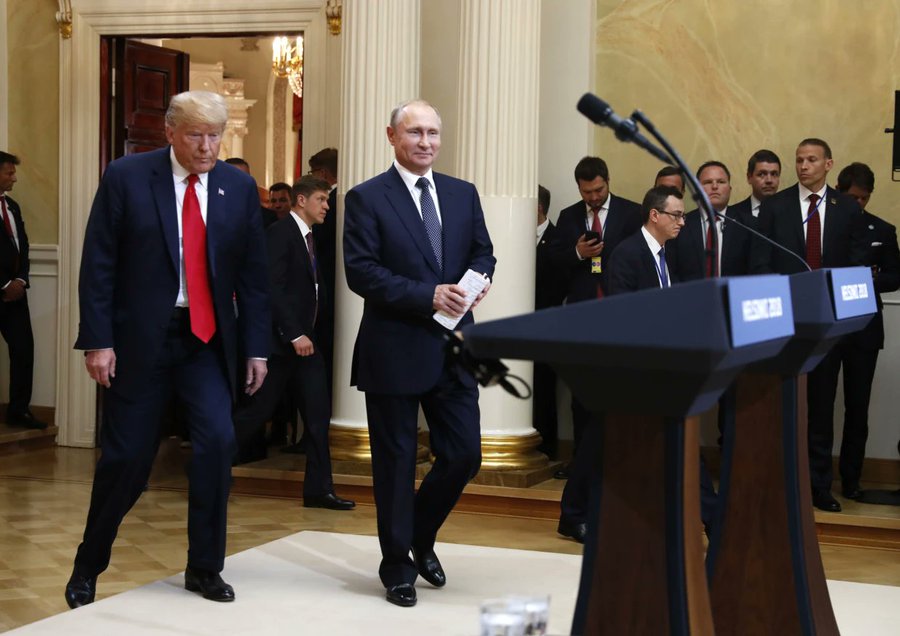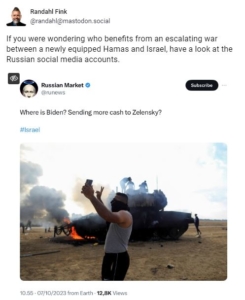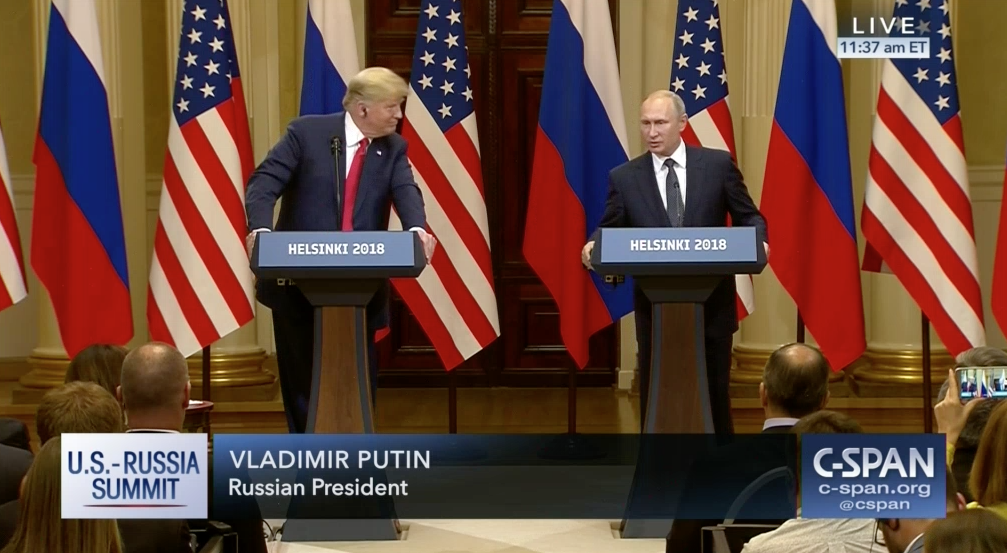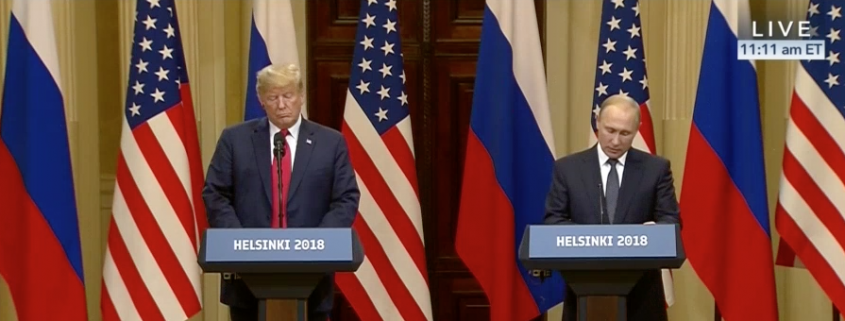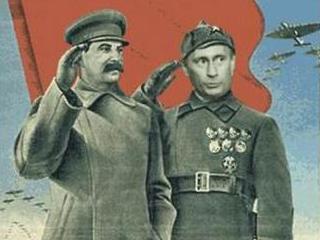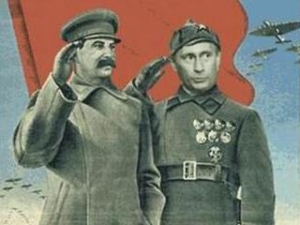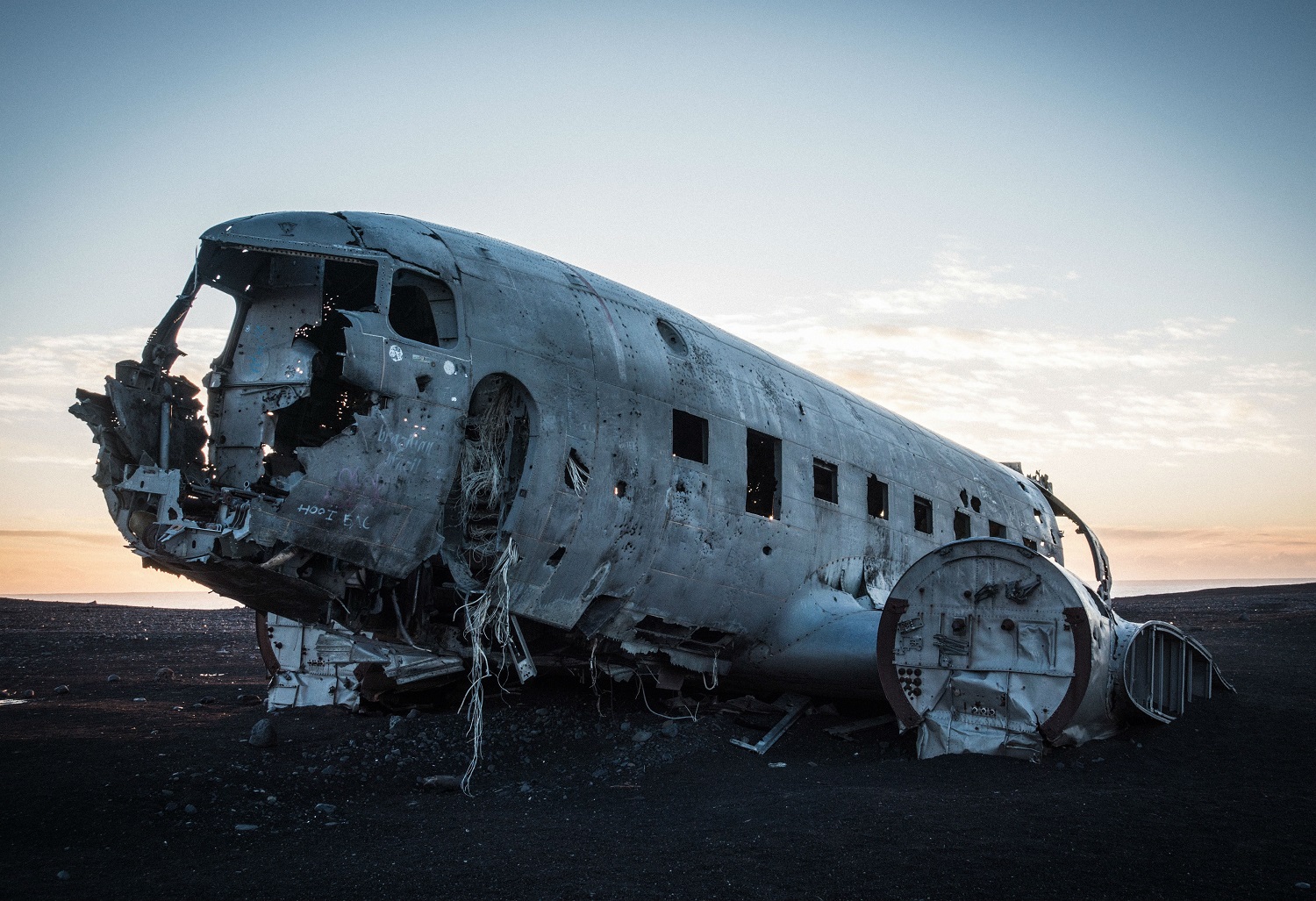Over the weekend, Putin and Donald Trump seem to have come to public agreement that, if elected in November, Trump would help Putin pursue Greater Russia.
In his session with Tucker Carlson, after all, Putin corrected the propagandist, informing him that, no, he didn’t invade Ukraine because of concerns about NATO expansion, but because he considers Ukraine — and much of Eastern Europe — part of Greater Russia. He subjected Tucker to a half hour lesson in his, Putin’s, mythology about Russia.
Tucker Carlson:Mr. President, thank you.
On February 24, 2022, you addressed your country in your nationwide address when the conflict in Ukraine started and you said that you were acting because you had come to the conclusion that the United States through NATO might initiate a quote, “surprise attack on our country”. And to American ears that sounds paranoid. Tell us why you believe the United States might strike Russia out of the blue. How did you conclude that?
Vladimir Putin:The point is not that the United States was going to launch a surprise strike on Russia, I didn’t say so. Are we having a talk show or serious conversation?
Tucker Carlson:That was a good quote. Thank you, it’s formidably, serious!
Vladimir Putin: Your education background is in history, as far as I understand, right?
Tucker Carlson: Yes.
Vladimir Putin: Then I will allow myself – just 30 seconds or one minute – to give a little historical background, if you don’t mind.
Tucker Carlson: Please.
Vladimir Putin: Look how did our relations with Ukraine begin, where does Ukraine come from.
[snip]
Tucker Carlson: May I ask… You are making the case that Ukraine, certain parts of Ukraine, Eastern Ukraine, in fact, has been Russia for hundreds of years, why wouldn’t you just take it when you became President 24 years ago? Your have nuclear weapons, they don’t. It’s actually your land. Why did you wait so long?
Vladimir Putin: I’ll tell you. I’m coming to that. This briefing is coming to an end. It might be boring, but it explains many things.
And then, within a day, Trump told a fabricated story that served to promise that not only wouldn’t he honor America’s commitment to defend NATO states, but would instead encourage Russia to do “whatever they hell they want.”
One of the presidents of a big country stood up and said, “Well, sir, if we don’t pay and we’re attacked by Russia, will you protect us?,” I said, “You didn’t pay. You’re delinquent.” He said, “Yes, let’s say that happened.” No, I would not protect you. In fact, I would encourage them to do whatever the hell they want. You got to pay. You got to pay your bills.
Call and response.
I still owe you a post(s) about my full understanding of the Russian investigation, one of the last parts of my Ball of Thread before I describe how Trump trained Republicans to hate rule of law. But I want to point to some aspects of 2016 — how Russia used similar calls and response to lock Trump in as part of the help they gave him.
As Adam Schiff addressed to in the exchange where he walked John Durham through all the elements of what Schiff described as “collusion” of which Durham claimed to be ignorant, Trump first asked for help, then got it.
Mr. Schiff. Don Jr. when offered dirt as part of what was described as Russian government effort to help the Trump Campaign said, “if it’s what you say, I love it;” Would you call that an invitation to get Russian help with dirt on Hillary Clinton?
Mr. Durham. The words speak for themselves, I supposed.
Mr. Schiff. I think they do. In fact, he said, especially late in summer. Late in summer was around when the Russians started to dump the stolen emails, wasn’t it?
Mr. Durham. Late in the summer, there was information that was disclosed by WikiLeaks in mid to late July.
Only, it happened even more than Schiff laid out. And it happened in ways that ensured Trump would be stuck down the road.
The way it worked with the Trump Tower Moscow dangle may be most instructive (this is, obviously, a paraphrase).
Late 2015, Felix Sater to Michael Cohen: Do you want the biggest bestest tower in Moscow? Are you willing to work with a former GRU officer and sanctioned banks to get it?
Cohen: Yes.
January 2016, Sater: Okay, then call the Kremlin.

January 2016, Michael Cohen to Dmitry Peskov, writing on a server hosted by Microsoft: Can I have Vladimir Putin’s help to build the biggest bestest tower in Moscow?
[Peskov pockets proof that Cohen and Trump were willing to work with a former GRU officer and sanctioned banks. Before the first primary, Putin pocketed his first receipt.]
May, after Trump has sealed the nomination, Sater to Cohen: You should fly to St. Petersburg to meet with Putin.
Cohen agrees, but once the DNC hack is revealed, Cohen decides that’s a bad idea and calls it off. Already, the stakes of having agreed to work with a former GRU officer have now gone up considerably.
July 27, Trump responding to some totally predictable questions, between asking Russia to hack Hillary some more and stating he would consider recognizing Russia’s seizure of Crimeia:
TRUMP: No, I have nothing to do with Russia, John (ph). How many times do I have say that? Are you a smart man? I have nothing to with Russia, I have nothing to do with Russia.
And even — for anything. What do I have to do with Russia? You know the closest I came to Russia, I bought a house a number of years ago in Palm Beach, Florida.
Palm Beach is a very expensive place. There was a man who went bankrupt and I bought the house for $40 million and I sold it to a Russian for $100 million including brokerage commissions. So I sold it. So I bought it for 40, I told it for 100 to a Russian. That was a number of years ago. I guess probably I sell condos to Russians, OK?
[snip]
TRUMP: Excuse me, listen. We wanted to; we were doing Miss Universe 4 or 5 years ago in Russia. It was a tremendous success. Very, very successful. And there were developers in Russia that wanted to put a lot of money into developments in Russia. And they wanted us to do it. But it never worked out.
Frankly I didn’t want to do it for a couple of different reasons. But we had a major developer, particular, but numerous developers that wanted to develop property in Moscow and other places. But we decided not to do it.
[Peskov now has a secret with Trump and Cohen, that in fact this was a lie.]
By the time Trump told this lie, Roger Stone was already working on getting advance notice of the contents of the John Podesta emails, a more specific ask. And Konstantin Kilimnik was preparing his trip to meet in a cigar bar with Paul Manafort where they would discuss how to win the swing states, how Manafort could get paid, and how to carve up Ukraine.
Later Steele dossier entries, sourced through Olga Galkina, who had started working directly with Peskov, claimed that Cohen had direct contact with the Kremlin (he had!), and claimed he was fixing Trump problems (he was! Trump’s sex worker problem!), but instead claimed that Cohen was instead fixing a Russian tie problem.
By the time those October Steele dossier entries were written, and especially by the time the December one was, Russia had done the following:
- Gotten Cohen (and through him, Trump) to agree to work with sanctioned banks and a former GRU officer to get the biggest bestest Tower in Moscow
- Left evidence of this fact on Cohen and Sater’s phones, in Trump Organization call records, and Trump Organization emails hosted by Microsoft, where they would be discoverable in case of investigation
- Established a secret between the Kremlin and Trump: that the statements Trump made on the same day Russia obliged his request to hack Hillary, denying that he had ongoing discussions with Russia, were a lie
- Made the substance of the lie look far, far worse, thereby increasing the chances the lie would be discovered, which it was
Through a predictable mix of narcissism and sloppiness, then, Trump had compromised himself without even thinking through the consequences.
Trump always insisted that his request that Russia further hack his opponent on July 27, 2016 was just a joke (and never really accounted for the Crimea comment). But Roger Stone was inserting himself into Trump’s public foreign policy statements as early as April.

And, after two conversations with Trump on July 31, Stone scripted a number of pro-Russian tweets for Trump to post. Trump didn’t post the tweets Stone sent; his staffers were instead cleaning up from the “Are you listening” comment. But Stone may have posted the ones he drafted himself.
Of course the Russians hacked @HillaryClinton’s e-mail- Putin doesn’t want the WAR with Russia neo-con Hillary’s donors have paid for
HYPOCRISY ! @HillaryClinton attacks Trump for non-relationship with Putin when she and Bill have taken millions from Russians oligarchs
Trump wants to end the cold war and defuse out tensions with Russia. Hillary ,neocon wants war. Putin gets it. @smerconish @realDonaldTrump
,@RealDonaldTrump wants to end new cold war tensions with Russia-thru tough negotiation- #detente #NYTimes
That is, in 2016, days before Stone’s lifelong friend Manafort would discuss election help in the same conversation as carving up Ukraine, days before Stone himself got advance notice of the Podesta emails, the rat-fucker was promising that Trump would end cold and hot wars with Russia.
By the time Stone did get those advance Podesta emails in mid-August 2016, the operation had already linked Stone to two Russian intelligence operations: the use of Julian Assange as a cut-out (and his request for a pardon), and the Shadow Brokers operation releasing NSA files publicly. That is, by chasing the carrot of stolen Hillary emails, Stone linked himself inextricably with two sticks, association with the most effective attacks on the US Deep State in recent history. Stone and Trump would have happily targeted the Deep State anyway, but Russia didn’t leave that to chance.
First Trump and Cohen compromised themselves by asking for help. Then Trump personally and through Stone made policy commitments. Along the way, Russia kept pocketing one or another receipt that would help bind Trump to those commitments, or if not, ensure some kind of leverage over him.
Here we are, eight years later, and that formula has only gotten more overt. At a time when winning the election is an existential necessity for Trump, one day after Putin made clear he is seeking not just Ukraine, but Greater Russia, Trump overtly promised to allow Russia to carve up NATO.
Past history suggests that may be no coincidence.
Update: Fixed a reference to Manafort.

